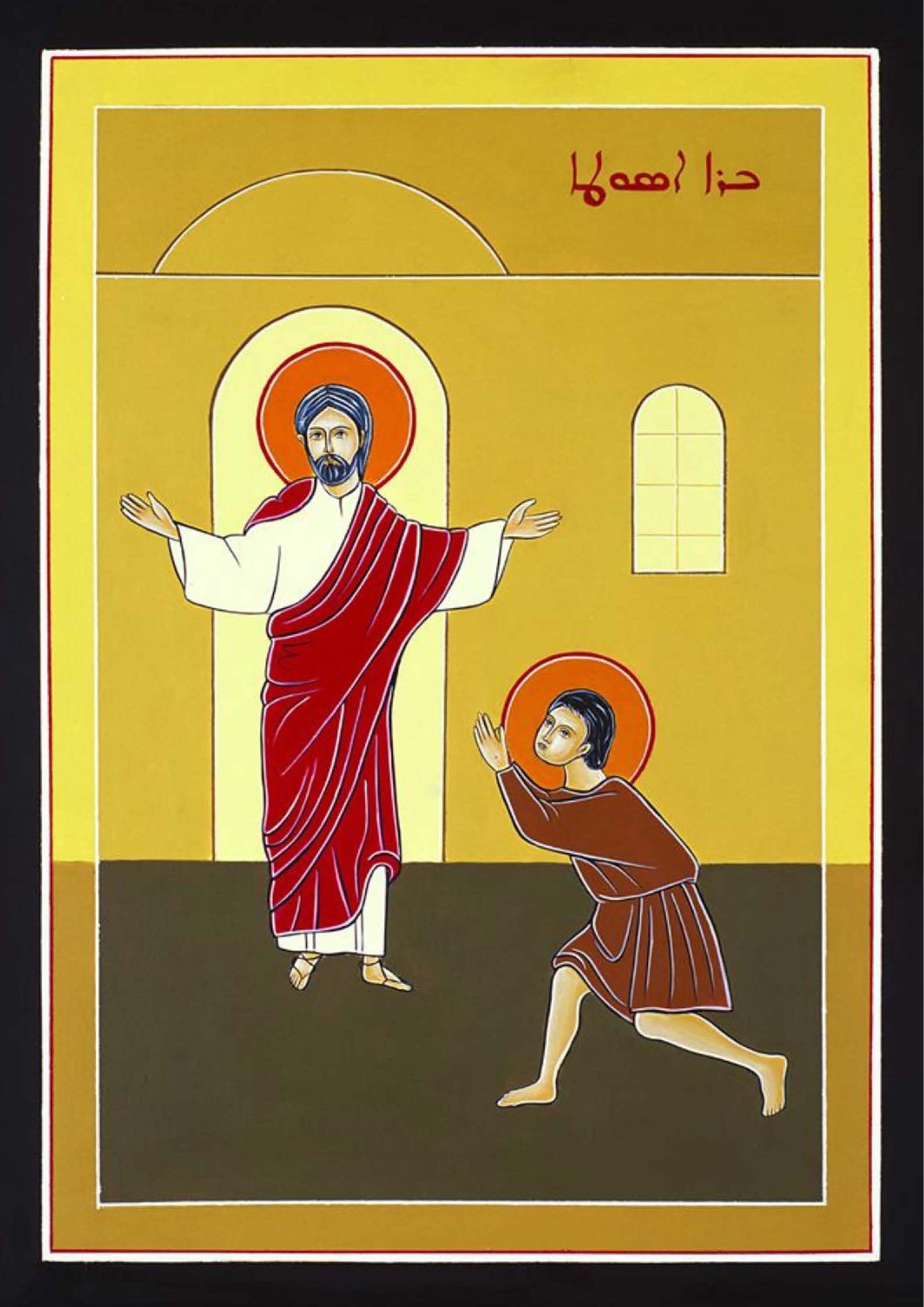
Author: Salwa Elias
In the weeks before Palm Sunday, the Maronite Liturgy focuses on the miracles of healing that took place before Christ would have to endure his Passion.
Among these weeks of recalling the physical healings, and even revival from the dead, this Sunday’s Gospel in the Maronite Lectionary tells of a spiritual healing, a conversion of heart and mind, as we reflect upon Sunday of the Prodigal Son (Luke 15:11-32).
The word “prodigal” doesn’t actually appear in the parable itself, but St Luke does say that the one who had been dead now lives, and the one who had been lost has been found. That is, he has come to salvation through repentance.
The word “prodigal” is from a Latin root; it comes from the verb prōdigere (to drive away) and means “to be wasteful.”
That is, a wasteful person drives away their wealth and substance. The parable seems to focus upon the wayward son burning through his inheritance, but Christ wants us to focus on his repentance and the salvation that follows.
This parable carries for us a great message of hope, for who among us has not, at some point in their lives, offended their Father in heaven?
And who among us does not yearn to return to him and be welcomed by him, and to be acknowledged as his own child?
This is where the healing power of God is dispensed through the Sacrament of Confession, and freely given to those who repent.
The liturgy today is the essence and summary of our Lenten journey—to recall all the gifts from our Heavenly Father which we have taken for granted, and are now offering in the form of penance, abstinence, and fasting.
As a teenager in the 1970s, and growing up on the northern beaches of Sydney, my days were spent either in the local library studying, or swimming at Balmoral Beach.
I was one of thousands who found solace in the sun and waves of our beautiful Pacific Ocean. It was during a holiday break that I met a group of “hippies” who introduced me to their unusual beliefs and ideals.
After encountering a few other groups of the age, such as “the children of God” and Hare Krishnas, it became clear to me that not everyone in the world believed in the same Triune God as Catholics believe.
Often I wonder and ask myself “What if I had followed one of these non-Christian groups? What if I were not born into a Catholic family?”
These questions haunt me every time I see an advertisement that seeks donations for children and families in third-world countries that are starving and homeless, on the brink of death. That could have been me.
But it wasn’t, by the grace of God. It begs the question though: Are God’s mercy and love exclusive to followers of Christ and those who are not wandering astray?
Definitely not! Seeking out and saving the lost, like the “prodigal son” who appears to be enjoying his sinful ways, is as simple as showing mercy and compassion to those who cannot find purpose or direction in their lives, sometimes unaware that they are lost, thinking their way is the right way.
This is what Jesus expects of those who follow him: to imitate his love and mercy when dealing with others.
No matter where they’ve been or who you think they are, everyone deserves mercy, love, and forgiveness.
When I was growing up in that “hippie era” God knew all I wanted was to find “the Truth” and he led me on that winding path of discovery which brought me back to him. Thanks be to God that I am where I am today.
Imagine how all of heaven rejoices over one repentant sinner!
When we see others offending God by their actions, words, or lifestyle, let us pray for their conversion of heart.
We can offer our Lenten penances with this intention in mind, asking God to find a way into their hearts. “Jesus, meek and humble of heart, make our hearts like unto thine.”
Salwa Elias is a member of the Maronite Catholic Church and is the EWTN producer for Australia and New Zealand


